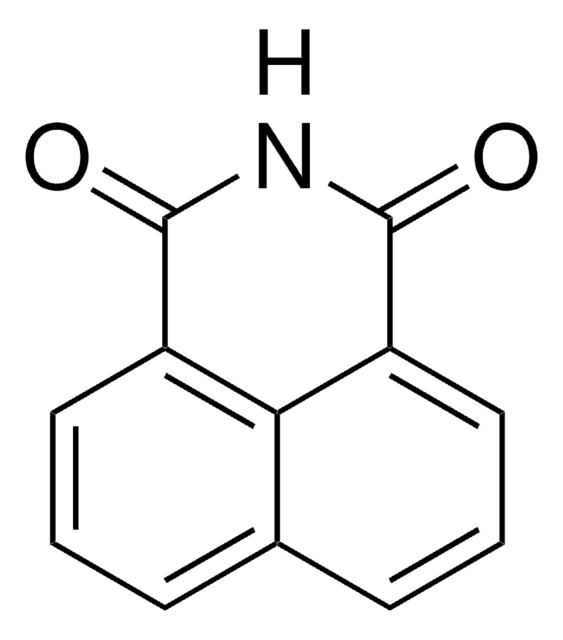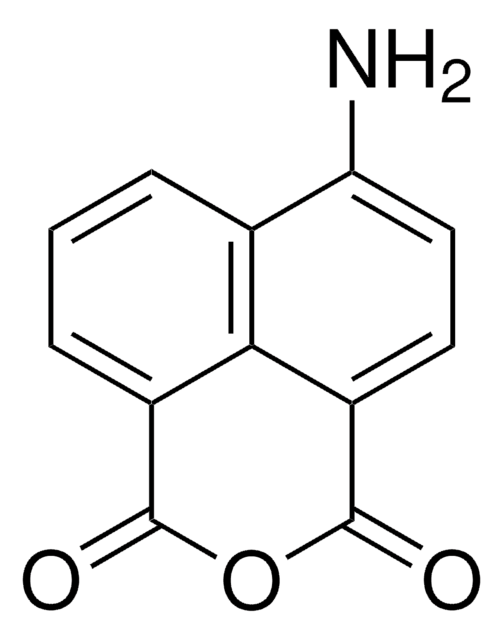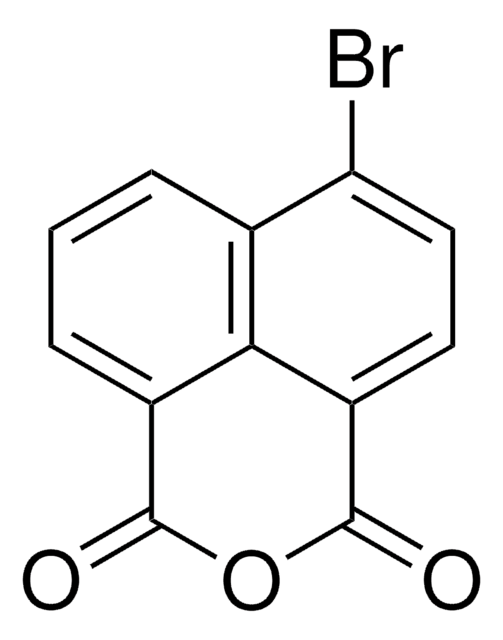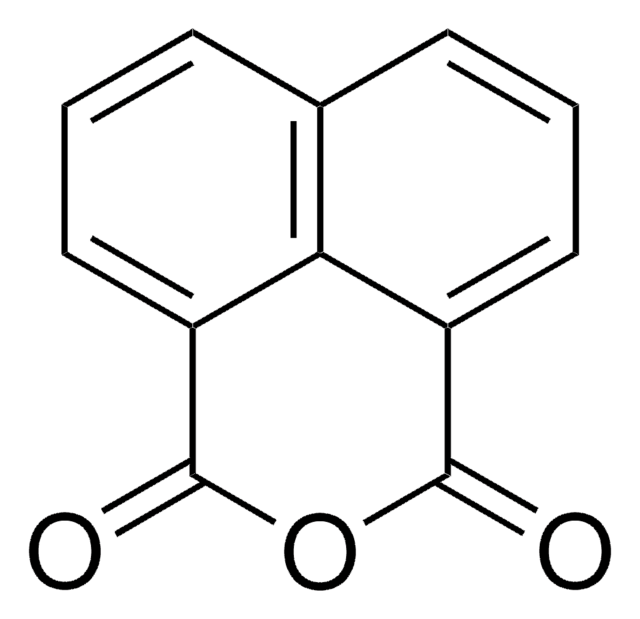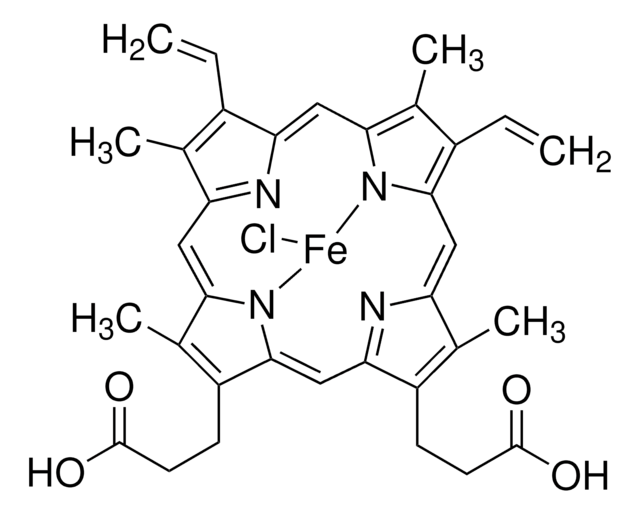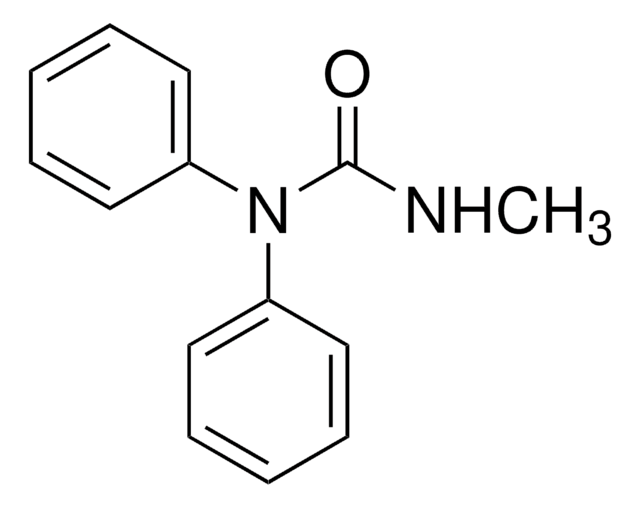About This Item
Recommended Products
Product Name
4-Amino-1,8-naphthalimide,
form
solid
Quality Level
mp
360 °C
density
1.105 g/mL at 25 °C (lit.)
storage temp.
−20°C
SMILES string
Nc1ccc2C(=O)NC(=O)c3cccc1c23
InChI
1S/C12H8N2O2/c13-9-5-4-8-10-6(9)2-1-3-7(10)11(15)14-12(8)16/h1-5H,13H2,(H,14,15,16)
InChI key
SSMIFVHARFVINF-UHFFFAOYSA-N
Looking for similar products? Visit Product Comparison Guide
Biochem/physiol Actions
Signal Word
Warning
Hazard Statements
Precautionary Statements
Hazard Classifications
Eye Irrit. 2 - Skin Irrit. 2 - STOT SE 3
Target Organs
Respiratory system
Storage Class Code
11 - Combustible Solids
WGK
WGK 3
Personal Protective Equipment
Choose from one of the most recent versions:
Certificates of Analysis (COA)
Don't see the Right Version?
If you require a particular version, you can look up a specific certificate by the Lot or Batch number.
Already Own This Product?
Find documentation for the products that you have recently purchased in the Document Library.
Customers Also Viewed
Our team of scientists has experience in all areas of research including Life Science, Material Science, Chemical Synthesis, Chromatography, Analytical and many others.
Contact Technical Service